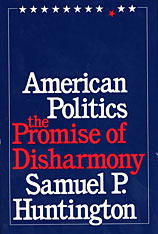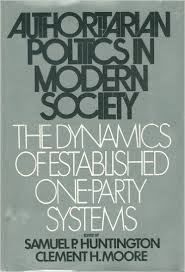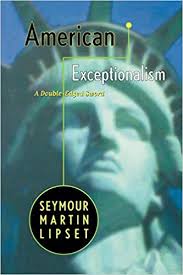 The current U.S. protests against racial inequality would have come as no surprise to the celebrated political scientist Samuel P. Huntington.
The current U.S. protests against racial inequality would have come as no surprise to the celebrated political scientist Samuel P. Huntington.
In his classic text, American Politics: The Promise of Disharmony, he predicted that the tension between the promise of American ideals and the performance of American institutions – what he calls the “IvI gap” of ideals versus institutions – would likely increase. While Americans have been united by the democratic creed of liberty, equality, and hostility to authority, these ideals have been perennially frustrated by the institutions, practices and hierarchies demanded by the essential functions of democratic governance.
The USA is a nation founded on ideals that can never be fully realized, Huntington argued: “In terms of American beliefs, government is supposed to be egalitarian, participatory, open, non-coercive, and responsive to the demands of individuals and groups. Yet no government can be all these things and still remain a government.”
 “At times, this dissonance is latent; at other times, when creedal passion runs high, it is brutally manifest, and at such times, the promise of American politics becomes its central agony,” he added, citing:
“At times, this dissonance is latent; at other times, when creedal passion runs high, it is brutally manifest, and at such times, the promise of American politics becomes its central agony,” he added, citing:
- the American Revolution against “the crown”
- the 1830s’ Jacksonian revolt against “the bank”
- the Progressives’ rejection of “the interests and the system” and ..
- the 1960s’ revolt against the military-industrial complex.
So the current period of creedal passion is right on time.
“The common enemy in all was large-scale organization,” Huntington stated. “The common goal in all four periods was the break-up or reduction of organized power, its reform and control, the opening up of the processes of decision making to public participation. … In all four eras, institutions of power were summoned to judgment before the ideals of liberty, and the anti-power ethic reinvigorated as a guide to political action.”
 These “creedal passion periods” were essential to American development and stability because they brought American institutions and practices more in line with American values, he argued.
These “creedal passion periods” were essential to American development and stability because they brought American institutions and practices more in line with American values, he argued.
More specifically, Huntington identified 14 characteristics of these periods, analyst :
- “Discontent was widespread; authority, hierarchy, specialization, and expertise were widely questioned or rejected.”
- “Political ideas were taken seriously and played an important role in the controversies of the time.”
- “Traditional American values of liberty, individualism, equality, popular control of government, and the openness of government were stressed in public discussion.”
- “Moral indignation over the IvI gap was widespread.”
- “Politics was characterized by agitation, excitement, commotion, even upheaval — far beyond the usual routine of interest-group conflict.”
- “Hostility toward power (the antipower ethic) was intense, with the central issue of politics often being defined as ‘liberty versus power.'”
- “The exposure or muckraking of the IvI gap was a central feature of politics.”
- “Movements flourished devoted to specific reforms or ’causes’ (women, minorities, criminal justice, temperance, peace).”
- “New media forms appeared, significantly increasing the influence of the media in politics.”
 The remaining five describe the changes these periods entail:
The remaining five describe the changes these periods entail:
- “Political participation expanded, often assuming new forms and often expressed through hitherto unusual channels.”
- “The principal political cleavages of the period tended to cut across economic class lines, with some combination of middle- and working-class groups promoting change.”
- “Major reforms were attempted in political institutions in order to limit power and reshape institutions in terms of American ideals (some of which were successful and some of which were lasting).”
- “A basic realignment occurred in the relations between social forces and political institutions, often including but not limited to the political party system.”
- “The prevailing ethos promoting reform in the name of traditional ideals was, in a sense, both forward-looking and backward-looking, progressive and conservative.”
“Critics say that America is a lie because its reality falls so short of its ideals,” Huntington writes in the book’s final lines. “They are wrong. America is not a lie; it is a disappointment. But it can be a disappointment only because it is also a hope.”







